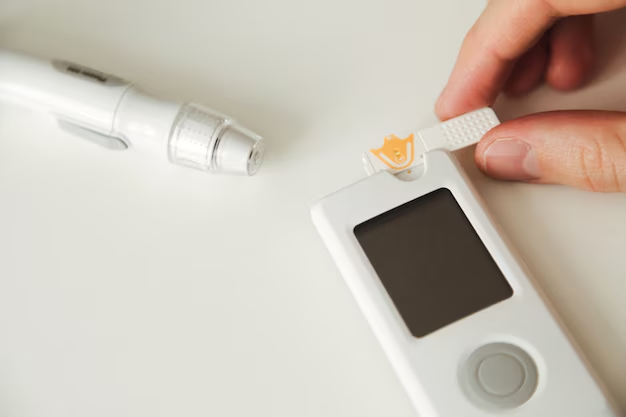Your Guide to How To Test For Type 1 Diabetes
What You Get:
Free Guide
Free, helpful information about Diabetes FAQ and related How To Test For Type 1 Diabetes topics.
Helpful Information
Get clear and easy-to-understand details about How To Test For Type 1 Diabetes topics and resources.
Personalized Offers
Answer a few optional questions to receive offers or information related to Diabetes FAQ. The survey is optional and not required to access your free guide.
Discovering Type 1 Diabetes: Essential Testing and Support Pathways
Detecting type 1 diabetes early can be life-changing, allowing individuals to manage the condition effectively and maintain a healthy lifestyle. Type 1 diabetes is an autoimmune disorder where the body attacks insulin-producing cells in the pancreas, leading to high blood sugar levels. Knowing how to test for it is crucial, especially if you experience symptoms like extreme thirst, frequent urination, weight loss, and fatigue. Let’s delve into the essential steps for testing and the possible avenues for financial and educational aid if you’re navigating diabetes.
Key Tests for Type 1 Diabetes
1. Blood Glucose Tests
The fastest way to identify abnormal sugar levels is through a blood glucose test. This involves a simple finger prick test using a glucometer that measures immediate blood sugar levels. If results show high sugar levels, it calls for further investigation.
2. Glycated Hemoglobin (A1C) Test
The A1C test is a standard diagnostic tool that measures average blood glucose over the past two to three months. An A1C level of 6.5% or higher on two separate tests suggests diabetes.
3. Fasting Blood Sugar Test
This test requires fasting overnight. A fasting blood glucose level of 126 mg/dL (7 mmol/L) or higher indicates diabetes. This test is typically used to confirm diagnosis when symptoms are present.
4. C-Peptide Test
A C-peptide test measures insulin production in your body. Low levels of C-peptide often accompany Type 1 diabetes and can differentiate it from Type 2 diabetes where insulin resistance is more the issue.
5. Autoantibody Tests
Type 1 diabetes often triggers certain autoantibodies, which are detectable through various blood tests. Testing for autoantibodies can help confirm a diabetes diagnosis and distinguish between type 1 and type 2 diabetes.
Navigating Financial and Educational Support
Being diagnosed with type 1 diabetes means coping with lifetime medical expenses, from insulin to daily management tools. Fortunately, various programs can assist:
- Government Aid Programs: 🌟 Medicare and Medicaid offer coverage for diabetes supplies and medicines for eligible individuals.
- Financial Assistance for Supplies: Many pharmaceutical companies provide patient assistance programs for reduced-cost insulin and supplies.
- Debt Relief Options: Consider consulting with a financial advisor about debt restructuring if medical expenses become overwhelming.
- Insurance Plan Utilization: Review private insurance plans thoroughly or consider plans under the Affordable Care Act for additional coverage.
- Educational Resources: Numerous non-profits offer workshops and materials to help manage diabetes effectively, enhancing quality of life and disease understanding.
Additional Support Programs
Here's a quick reference guide to programs that can support those diagnosed with Type 1 Diabetes:
🎓 Scholarships for Diabetic Students: Programs like Diabetes Scholars offer financial aid for education.
🛒 Discount Cards for Medications: RxAssist and NeedyMeds provide discounts on prescriptions.
📚 Educational Grants and Support: JDRF and Beyond Type 1 organizations provide resources and support communities to help educate and empower those with diabetes.
Taking proactive measures and utilizing available resources can enhance your quality of life if you or a loved one is diagnosed with type 1 diabetes. Stay informed, seek support, and take the necessary steps for better health management.
What You Get:
Free Diabetes FAQ Guide
Free, helpful information about How To Test For Type 1 Diabetes and related resources.

Helpful Information
Get clear, easy-to-understand details about How To Test For Type 1 Diabetes topics.

Optional Personalized Offers
Answer a few optional questions to see offers or information related to Diabetes FAQ. Participation is not required to get your free guide.


